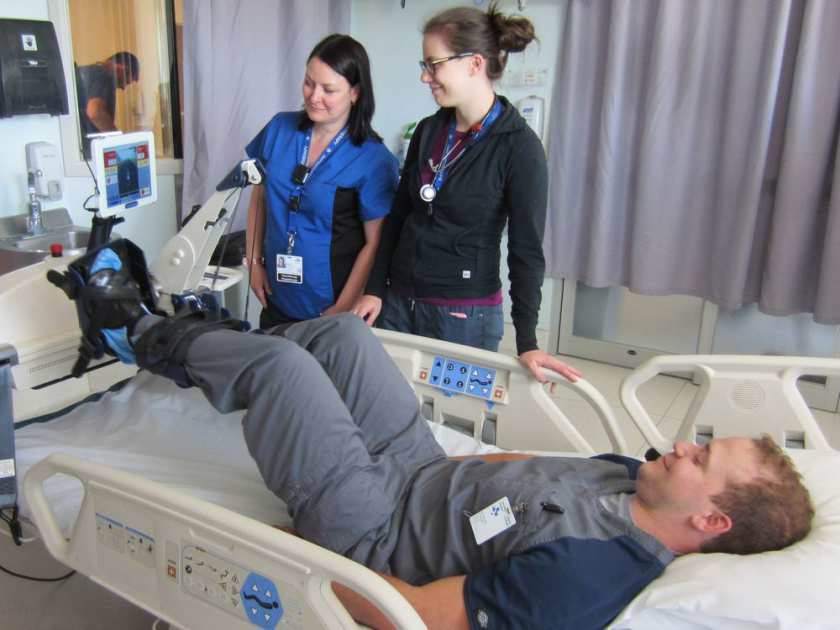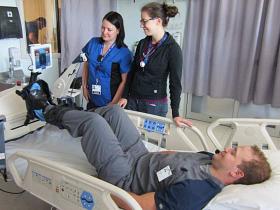Ottawa Hospital ICU Patients Get on their Bikes
Sound Impossible? Riding a bike is the last thing you would imagine critical patients in Intensive Care Units (ICU) doing, but in what could be a ground-breaking experiment, Ottawa Hospital is literally getting their patients moving within a week of admission.
Ottawa Hospital is just one of seven medical centres participating in the innovative 2-year CYCLE clinical trials, that are being headed up by Dr. Michelle Kho, of McMaster University. It is anticipated that an estimated 60 patients will form part of the research in the province.
The benefits of Physiotherapy in ICU are well documented and accepted as sound medical practice. Especially, when it can be initiated early on in treatment. However, traditional Physiotherapy does not exempt patients from muscle atrophy caused by inactivity, and damaging weakness associated with, and often aggravated by, assisted breathing on ventilators.
The trials will measure and compare outcomes between patients who have participated in the cycling exercises, and those who have only received traditional Physiotherapy. Bearing in mind that the patients who will participate are critically ill and often in pain, the specially designed bikes wheel up to the bed, where the patient can move the pedals from a horizontal position. Provision has even been made for patients who are heavily sedated, since the pedals are motorized. Patients will cycle for 30 minutes per day.
Cycling is a popular sport with well-known health and fitness benefits, so the out-of-the-box approach of applying this therapy to those whose bodies need it most, it not so far-fetched after all. For many of us, life is hectic and exhausting and the prospect of cycling for 30 minutes is tantamount to torture! Cycling on an automated bike from a horizontal position sounds appealing enough for the Cycle Trial to perhaps even have a future in domestic applications, with health benefits for healthy people who just don’t have the time or the energy to go to the gym – who knows?
In the meantime, it is hoped that this experiment will help critically ill patients achieve a speedy recovery, and get them back on track as quickly as possible.
Comments
There are 0 comments on this post













